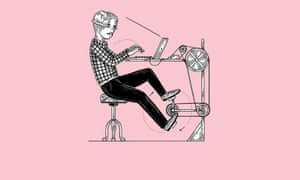Exercise Defined
Exercise is a movement of the body to enhance physical fitness.
Most people know that exercise is important for the physical development of the self, yet a majority of them are skipping exercise often.
158
1.04K reads
CURATED FROM
IDEAS CURATED BY
The idea is part of this collection:
Learn more about health with this collection
How to create a cosy and comfortable home environment
How to cultivate a sense of gratitude and contentment
The benefits of slowing down and enjoying simple pleasures
Related collections
Similar ideas to Exercise Defined
3. Exercise.
Regular exercise is a great way to boost energy levels, reduce stress, and improve physical and mental health. Successful people make time for exercise, whether it's a morning run, a yoga class, or a quick workout at home.
"Physical fitness is not only one of the most important keys to a he...
Exercise is not a widespread hobby
The rise of exercise culture has that has led to fitness-focused New Year's resolutions does not mean people will exercise. Only 1 in 4 U.S. adults and 1 in 5 high school students meet the recommended physical activity guidelines.
The relentless optimism displayed each year in setting fitn...
Myth: It's normal to exercise
Whenever you move to do stuff, that's physical activity. Exercise, however, is a voluntary physical activity that one undertakes for the sake of fitness.
Exercise is a modern behavior. Humans, for many ages, were only physically active whe...
Read & Learn
20x Faster
without
deepstash
with
deepstash
with
deepstash
Personalized microlearning
—
100+ Learning Journeys
—
Access to 200,000+ ideas
—
Access to the mobile app
—
Unlimited idea saving
—
—
Unlimited history
—
—
Unlimited listening to ideas
—
—
Downloading & offline access
—
—
Supercharge your mind with one idea per day
Enter your email and spend 1 minute every day to learn something new.
I agree to receive email updates

